LEDs are often overlooked components in electronics, but they are critical for devices like smartphones and TVs. This article delves into the history behind and capabilities of LED technology.
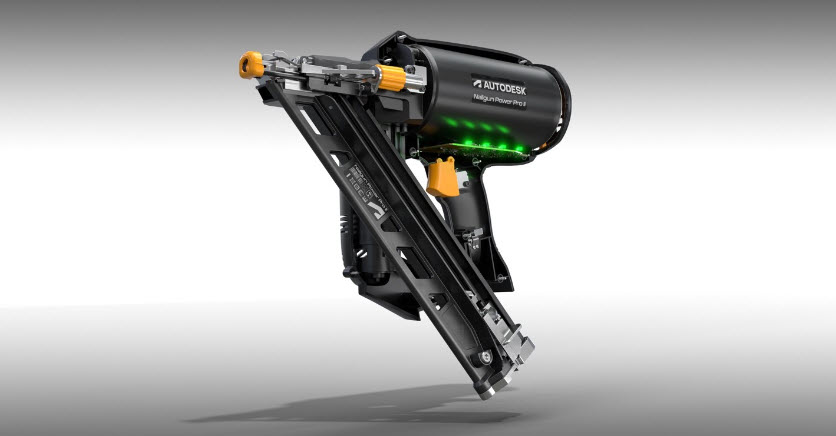
Have you ever held a smartphone, marveled at a vibrant TV screen, or flicked on a light switch to check the status of your favorite tools? Chances are, you’ve encountered the unsung hero of modern electronics: the Light Emitting Diode or LED. But have you ever wondered about the fascinating story behind this tiny powerhouse? Buckle up because we’re about to take you on a journey through time, innovation, and the sheer brilliance of LED technology.
The spark of an idea: How it all began
Picture this: it’s the early 1900s, and a curious experimenter named Henry Round notices a faint glow emanating from a silicon carbide crystal. This serendipitous observation marked the birth of electroluminescence, the phenomenon that underpins LED technology. Fast forward a few decades, and researchers like Nick Holonyak Jr. and Oleg Losev pioneered the development of the first practical LEDs. These were bulky, limited in color, and far from the energy-efficient marvels we know today.
From humble beginnings to microscopic marvels
The real magic began with the advent of semiconductor technology. As scientists delved deeper into materials science, they discovered ways to manipulate the properties of semiconductors, creating smaller, brighter, and more efficient LEDs. The miniaturization opened up a world of possibilities, allowing them to be integrated into everything from pocket calculators to traffic signals.
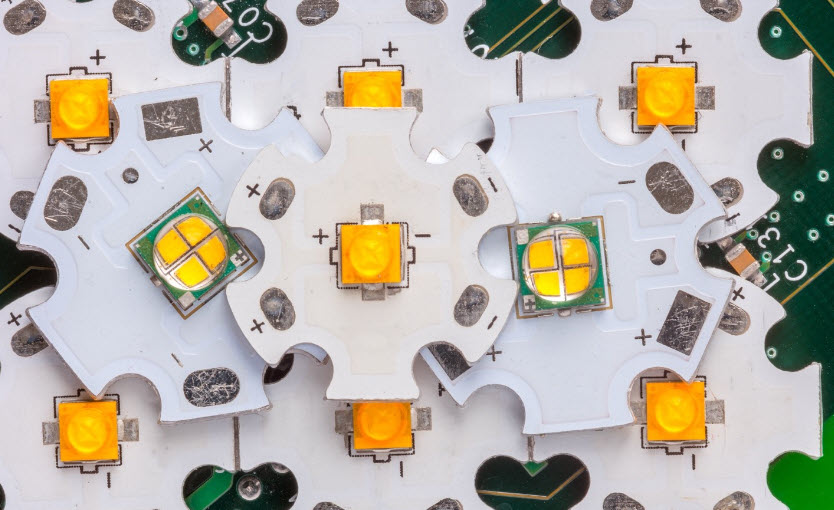
Why LED? The illumination revolution
But what makes LEDs so unique? Why did they replace traditional incandescent bulbs and even fluorescent lights? The answer lies in their numerous advantages:
- Energy efficiency: LEDs convert a significantly higher percentage of electrical energy into light, reducing energy consumption and lowering electricity bills.
- Longevity: LEDs can last tens of thousands of hours, considerably outliving their incandescent and fluorescent counterparts.
- Durability: Unlike fragile glass bulbs, LEDs are solid-state devices, making them resistant to shock and vibration.
- Color versatility: LEDs can produce a wide range of colors without filters, enabling vibrant displays and dynamic lighting effects.
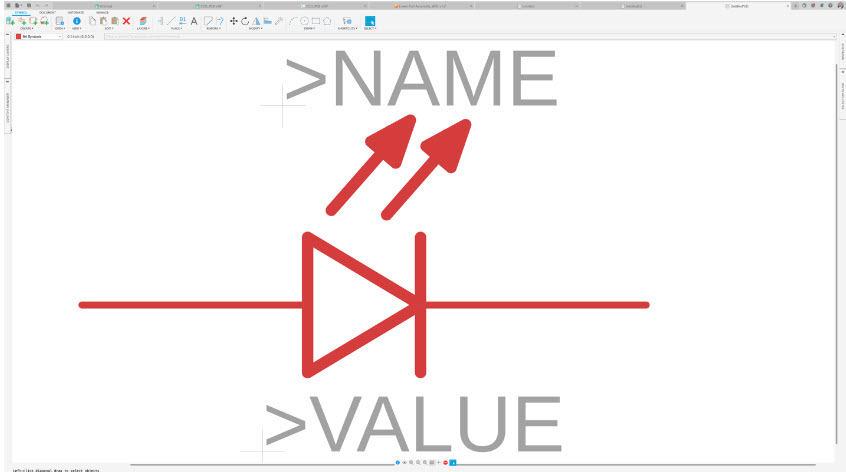
How does an LED work?
An LED, or Light Emitting Diode, is a semiconductor device that emits light when an electrical current passes through it. It consists of a p-n junction, where a p-type semiconductor (with excess holes) meets an n-type semiconductor (with excess electrons).
When a voltage is applied, electrons from the n-type region move toward the p-type region, while holes move in the opposite direction. When an electron and a hole meet at the junction, they recombine, releasing energy as a photon of light. The color of the emitted light depends on the specific semiconductor material used. This simple yet ingenious principle allows LEDs to produce bright, efficient, and long-lasting light, revolutionizing how we illuminate our world.
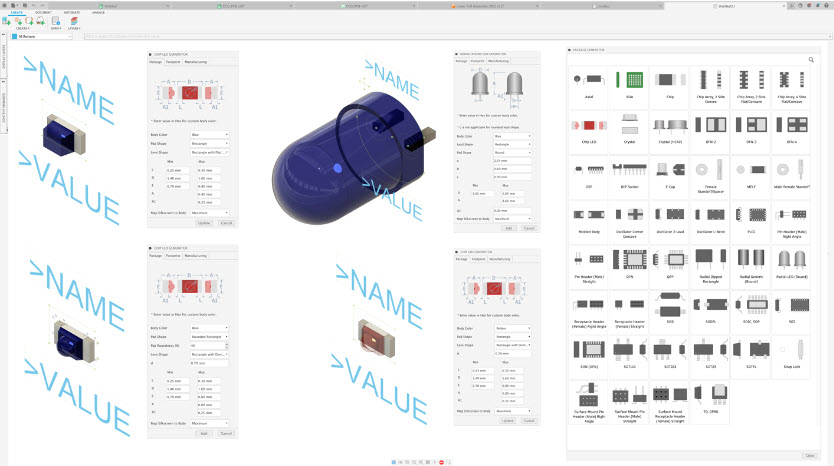
The Autodesk Fusion connection: Empowering PCB design
Let’s bring this story into the 21st century, where Autodesk Fusion plays a pivotal role. As LEDs shrunk, their integration into printed circuit boards (PCBs) became increasingly crucial. With its powerful PCB design capabilities, Autodesk Fusion empowers engineers to seamlessly incorporate LEDs into their designs. From schematic capture to PCB layout, Fusion streamlines the entire process, ensuring optimal placement, routing, and thermal management for LED components.
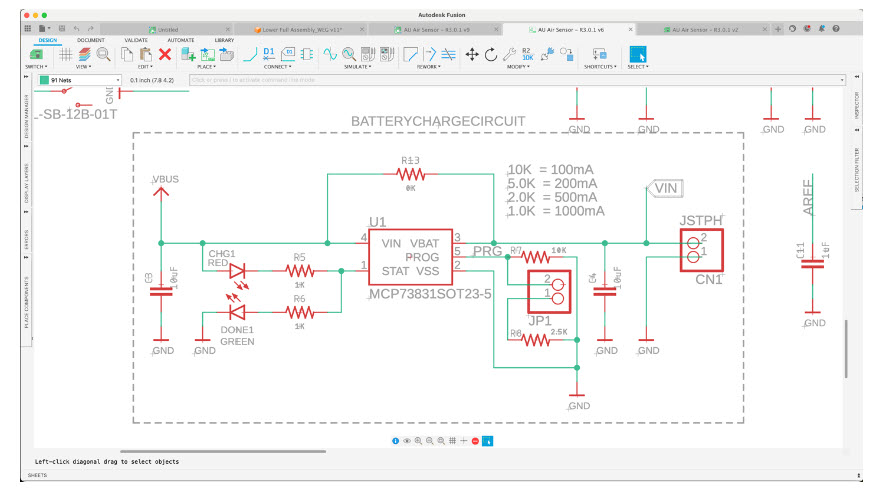
The future of the LED: A bright horizon
Today, LEDs are everywhere. They illuminate our homes, power our electronic devices, and even grace the runways of fashion shows. But the story continues. The future of LED technology is brimming with possibilities. As research progresses, we can expect even smaller, more efficient, and more versatile LEDs to emerge. Imagine that they can be integrated into fabrics, creating interactive clothing or mimicking natural sunlight, enhancing our well-being.
Your turn to shine
Now that you’ve glimpsed LEDs’ captivating history and boundless potential, it’s your turn to harness their power. With Autodesk Fusion as your creative ally, you can design PCBs that seamlessly integrate these tiny giants, bringing your innovative ideas to life. So, let your imagination soar and embrace LED technology’s endless possibilities. The future is bright, and LEDs illuminate it.